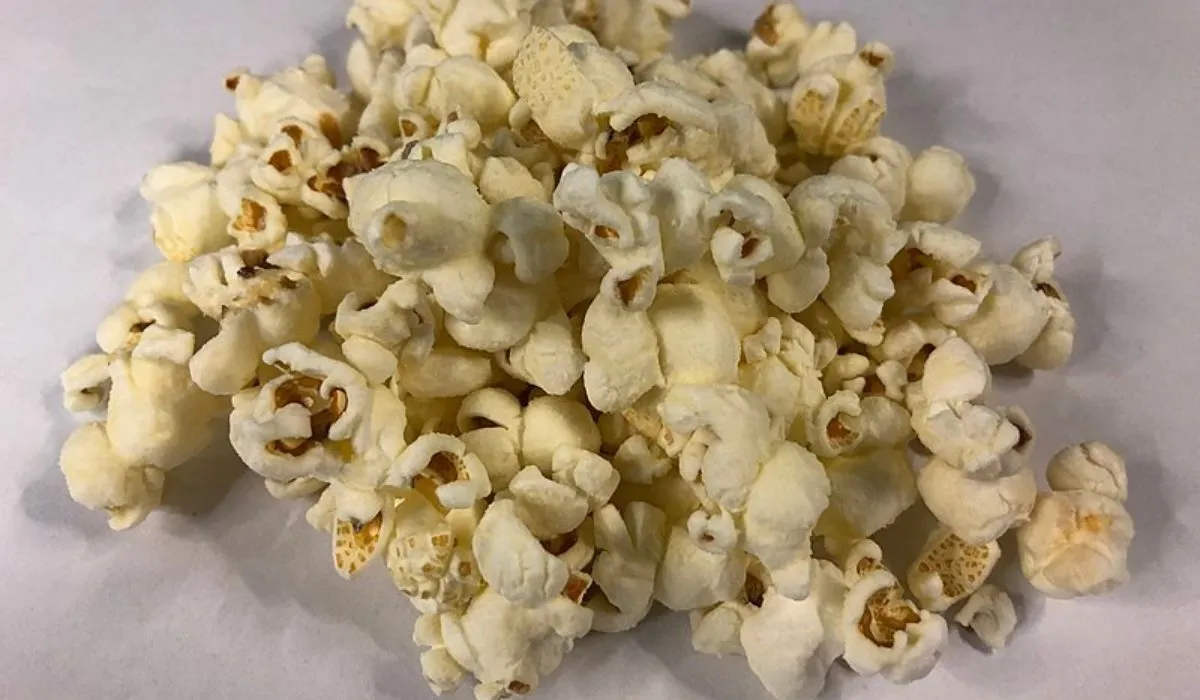Scientists and academics are actively seeking sustainable alternatives to single-use plastics as the globe struggles to cope with their environmental impact. The creation of biodegradable popcorn polymer is one such encouraging discovery that has the potential to transform the packaging business. Popcorn polymers is the subject of this article, which goes into detail about its history, characteristics, and possible uses.
The Birth of Popcorn Polymer
The name “popcorn polymer” gives away its source material: cinema popcorn. A renewable, biodegradable substance that may replace conventional plastics was the inspiration for the idea. In their quest to find an eco-friendly material with plastic-like qualities, researchers turned to nature for ideas.
Starch, usually made from maize, is the main component of popcorn polymer. A biodegradable polymer can be made from starch, a complex carbohydrate that is naturally abundant. The procedure uses a combination of chemical and mechanical steps to convert starch into a polymer, creating a substance that is comparable to regular plastic.
Properties of Popcorn Polymer
- Biodegradability: One of the main characteristics that distinguishes popcorn polymer from regular polymers is its biodegradability. Conventional plastics pose a serious threat to ecosystems because they can stay there for generations. Popcorn polymer, on the other hand, decomposes spontaneously and does not leave any toxic residues behind.
- Renewable Source: Popcorn polymer is a sustainable solution because it uses starch that comes from maize or other renewable sources. Unlike fossil fuels, which have a finite amount of supply, maize can be grown again and again.
- Versatility: Popcorn polymer is a versatile substance since it may be used for a variety of purposes. The revolutionary material is being investigated for a variety of potential uses by researchers, including packaging, disposable cutlery, and even medical applications.
- Strength and Durability: Popcorn polymer maintains its strength and durability while being biodegradable. Because it is durable enough to endure regular usage, it is a good choice for many products.
Applications of Popcorn Polymer
- Packaging: The packaging industry is where popcorn polymer has the greatest noticeable and immediate effect. Popcorn polymers provides a long-term replacement for single-use plastics, which are under increasing scrutiny around the world. The range of potential uses is enormous, including food packaging and transporting materials.
- Disposable Cutlery and Tableware: Restaurants and other food businesses are on the lookout for sustainable alternatives to single-use plastic dinnerware and silverware. One possible option would be popcorn polymer utensils, which are convenient and one-time use but less harmful to the environment.
- Medical Applications: Disposable medical equipment and supplies cause the medical business to produce a great deal of plastic trash. The biodegradable nature of popcorn polymers suggests it may have uses in the development of environmentally friendly medical supplies, mitigating some of the negative effects of conventional healthcare on the planet.
- Films for Agriculture: Mulching and greenhouse covers are two common uses for plastic films in agriculture. An eco-friendly alternative to standard plastic films, popcorn polymers is biodegradable and won’t add to pollution in the long run.
Challenges and Future Prospects
The creation of popcorn polymer offers optimism for a greener tomorrow, but it isn’t a picnic. The ability to scale is a major consideration. The goal of researchers is to find a way to generate popcorn polymers that can be mass-produced at a low cost.
Furthermore, there is a need for additional improvement in the performance of popcorn polymer in specific applications. As an example, researchers are always looking for ways to improve it so that it may pass muster as food packaging while maintaining high standards of safety and quality.
Even with all these obstacles, popcorn polymers still has a bright future ahead of it. The development and implementation of popcorn polymer could speed up in response to rising demand for sustainable alternatives and technological advancements, thereby reducing the environmental impact of plastic waste.
Conclusion
When looking for environmentally friendly substitutes for conventional plastics, popcorn polymers is an example of cutting-edge innovation. The great potential to alter industries dependent on single-use plastics is held by this polymer, which is biodegradable, adaptable, and derived from renewable sources. The world will be a more sustainable and ecologically aware place in the future thanks to popcorn polymer, according to continuing research and development, even though there are still obstacles. Popcorn polymer is making a strong case for a more sustainable future as green initiatives gain traction in the minds of consumers, companies, and governments.
Also Read: Garbage Removal Processes Every Sydney Resident Should Know About.
Frequently Asked Questions (FAQs)
What is Popcorn Polymer?
A biodegradable substance, popcorn polymers is made from starch, which is typically generated from maize. This polymers is transformed into a more environmentally friendly substitute for conventional plastics through a series of chemical and mechanical procedures that are modeled after the decomposition of popcorn.
How is Popcorn Polymers Produced?
Popcorn polymer is made by removing starch from maize or other sustainable sources. A biodegradable polymer is produced from this starch by a sequence of operations that include chemical treatments and mechanical changes.
What Makes Popcorn Polymers Biodegradable?
Popcorn polymers is biodegradable because it comes from an organic source. Popcorn polymers decomposes organically with time, eliminating any potential environmental hazards that may be left behind by traditional plastics.
Is Popcorn Polymers Strong and Durable?
Popcorn polymers is just as strong and long-lasting as any other plastic. Because of its durability, it finds employment in a wide range of products, including packaging, disposable cutlery, and medical supplies.
What Are the Main Applications of Popcorn Polymers?
Popcorn polymer is mainly used for packaging, but it has many other uses as well. It has a wide range of potential applications, including packaging, transportation, disposable cutlery, dinnerware, and even medical supplies. Popcorn polymers has great potential in many different sectors due of its adaptability.











